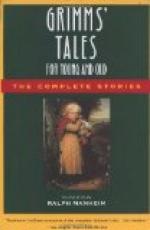He wrote to the Duchess of Berri, and to ‘his sister’ the Duchess of Angouleme. To the latter he offered to prove his identity in the following manner: ‘When in the Temple,’ he said, ’our royal mother and our aunt wrote several lines on a paper, which paper was cut in halves. One piece was given to you, and when we meet I will produce its fellow, which has never been out of my possession since our fatal separation.’ The truth of this was never put to the test, for no answer was deigned to his letter.
At length the state in which the Duke of Normandy lived, the constant visits of his increasing partisans, and his general proceedings, attracted the attention of the police; and the heir to the French throne was made to understand that he stood a likely chance of being thrown into prison, and brought up to answer for his conduct before the Court of Assize. Upon this he determined to live less ostentatiously, and withdrew to a hotel in the Rue St Guillaume (No. 34), with which address none but a chosen few of his devoted partisans were made acquainted. Though formerly disappointed at having been passed so contemptuously over by the authorities, he now seemed in great dread of them. He never dared to appear abroad, and instituted particular signs and modes of knocking at his door, when those in the secret wished admittance. The proprietor of the house entertained from these proceedings very disagreeable suspicions, and, lest he should get into trouble himself, gave his illustrious lodger notice to quit. Some weeks after, the claimant of the crown was really arrested; but exile, and not imprisonment was his doom. He was placed in the coupe of a diligence between two policemen, and conducted beyond the frontiers of France. In 1838 we find him in England, still calling himself the Duke of Normandy.
He took up his quarters in Camberwell Green, near London, and in November of the above year, suffered a second attempt upon his life. He was, it seems, returning from an outhouse in the garden, when a man confronted him, and fired two pistols at his breast. He pushed aside the weapons with the candlestick he happened to be carrying; but two bullets entered his left arm. The assassin escaped over a drain into a back-street; but having been recognised, was subsequently captured. A surgeon was sent for, and the bullets extracted, after having done no serious injury. The criminal turned out to be one of his late adherents, by name Desire Rousselle; who, on examination before the magistrates of the police-office at Union Hall, could assign no motive for the deed; and after two more examinations he was discharged, the duke declining to prosecute. The next appearance of his grace of Normandy at a police-office was in character of defendant. It seems that he had turned his attention to the art of pyrotechnics, and his explosive experiments were so alarming to the quiet neighbourhood of Camberwell, that he was summoned to answer for his conduct; but




